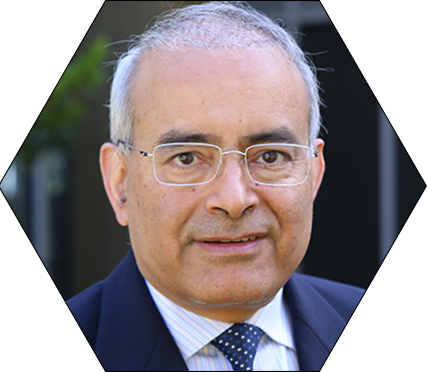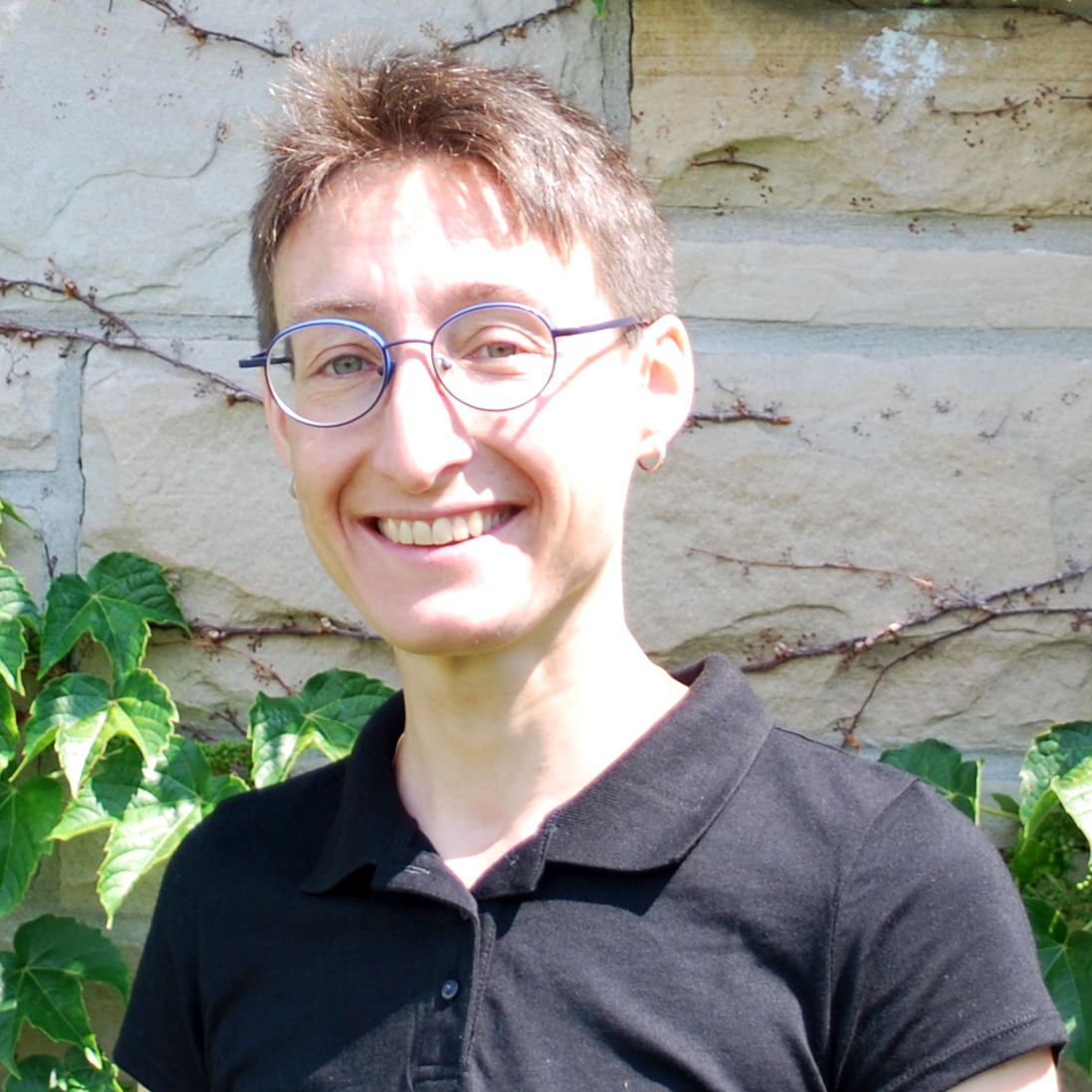Randall Guensler

Electric Vehicles; Smart Infrastructure

Electric Vehicles; Smart Infrastructure

Aaron D. Levine is Associate Dean for Research and Outreach in the Ivan Allen College of Liberal Arts and Professor in the School of Public Policy at Georgia Tech. He also holds an appointment as a Guest Researcher in the Division of Reproductive Health at the Centers for Disease Control and Prevention. He is a member of the leadership team for the NSF Engineering Research Center for Cell Manufacturing Technologies (CMaT), leading ethics and policy research for the center. He seved as Co-Director for CMaT's Engineering Workforce Development activities from 2017 to 2022. His research focuses on the intersection between public policy and bioethics. Much of his work has examined the development of stem cell science, particularly research using human embryonic stem cells, and the translation of novel cell therapies. He also writes extensively on the oversight of contentious areas of medicine, such as assisted reproductive technology. In 2012, he received a NSF CAREER award to examine the impact of ethical controversy on graduate science education and the development of scientific careers. He serves as Vice-Chair for Bioethics on the International Society for Cell & Genel Therapy’s Committee on the Ethics of Cell and Gene Therapy and recently completed a three-year term as an elected member of the Board of Directors of the American Society for Bioethics and Humanities. He is also a long-time member of the International Society for Stem Cell Research, the Association for Public Policy Analysis and Management, and the American Association for the Advancement of Science.
Aaron has a long-standing interest in science communication and is the author of Cloning: A Beginner's Guide (Oneworld Publications, 2007), an accessible introduction to the science of cloning and embryonic stem cells and the ethical and policy controversies this science inspires. He was an AAAS Leshner Leadership Institute Public Engagement Fellow for 2019-2020. You can follow Aaron on twitter at @aarondlevine.
He completed his Ph.D. in Public Affairs at Princeton University, where his dissertation research examined the impact of public policy on the development of human embryonic stem cell science. He also holds an M. Phil. from the University of Cambridge, where, as a Churchill Scholar, he studied computational biology at the Sanger Centre and developed algorithms to help analyze the human genome sequence, and a B.S. in Biology from the University of North Carolina at Chapel Hill, where he was a Morehead Scholar.
The impact of ethical controversy on scientific research, with a particular emphasis on emerging biomedical technologies.Recent work has focused on a range of issues related to stem cell policy (including state-level science policy and the rise of unproven stem cell therapies) as well as the oversight of assisted reproduction.

Prior to joining the Georgia Tech faculty in 2001 as a Professor, Yogendra Joshi held academic positions at the University of Maryland, College Park, and the Naval Postgraduate School, Monterey, California. He also worked in the semiconductor assembly industry on process thermal model development. He was named to the McKenney/Shiver Chair in 2004.
Thermal SystemsSystem Design & Optimization

Nancey Green Leigh is a Professor in the School of City and Regional Planning and adviser for the economic development planning, working with masters and doctoral students. Maintaining an active research program, Leigh is currently leading a project entitled "Workers, Firms and Industries in Robotic Regions," funded by the National Science Foundation's Robotics Initiative. She previously led a large scale research effort by three universities focused on sustainable industrial systems for urban regions. Both of these efforts as well as other funded research (brownfields, urban land and manufacturing, resilient infrastructure) contribute to Leigh's long term focus on advancing sustainable development for local and regional economies. As Associate Dean for Research, Leigh is focused on strengthening the research impact of the College of Design. She develops and administers competitive initiatives to support individual and collaborative research by college faculty and affiliated researchers. She oversees the college's seven major research units. She also is engaged in building research connections within Georgia Tech between the College of Design, other colleges and Interdisciplinary Research Institutes, as well as to external funders and collaborators in the public, private and nonprofit sectors. Leigh has published more than 60 articles and four books, Routledge Handbook of International Planning Education (2019 with S.P. French, S. Guhathakurta, and B. Stiftel), Planning Local Economic Development, 6th edition (2017 with E.J. Blakely) adopted for courses in a wide array of universities; Economic Revitalization: Cases and Strategies for City and Suburb (2002 with J. Fitzgerald); and Stemming Middle Class Decline: The Challenge to Economic Development Planning (1994). She was co-editor of the Journal of Planning Education and Research from 2012 to 2016, and was elected a Fellow of the American Institute of Certified Planners in 2008.
economic development; robots & AI impact on workers; firms & regions; City and Regional Planning; System Design & Optimization; Design Sciences

Chloé Arson is a professor in the School of Civil and Environmental Engineering (CEE) at Cornell University and an adjunct faculty in the Schools of CEE and Earth and Atmospheric Sciences at the Georgia Institute of Technology (Georgia Tech). She earned her Ph.D. at Ecole Nationale des Ponts et Chaussées (France) in 2009. She was an assistant professor at Texas A&M University from 2009 to 2012. Then, she worked as an assistant professor (2012-2016), associate professor (2016-2022) and professor (2022-2023) in the Georgia Tech School of CEE. Arson joined the faculty at Cornell University in Summer 2023.
Numerical modeling, geomaterials, bio-inspired materials

Building Technologies

Pascal Van Hentenryck is an A. Russell Chandler III Chair and Professor in the H. Milton Stewart School of Industrial and Systems Engineering at Georgia Tech. Prior to this appointment, he was a professor of Computer Science at Brown University for about 20 years, he led the optimization research group (about 70 people) at National ICT Australia (NICTA) (until its merger with CSIRO), and was the Seth Bonder Collegiate Professor of Engineering at the University of Michigan. Van Hentenryck is also an Honorary Professor at the Australian National University.
Van Hentenryck is a Fellow of AAAI (the Association for the Advancement of Artificial Intelligence) and INFORMS (the Institute for Operations Research and Management Science). He has been awarded two honorary doctoral degrees from the University of Louvain and the university of Nantes, the IFORS Distinguished Lecturer Award, the Philip J. Bray Award for teaching excellence in the physical sciences at Brown University, the ACP Award for Research Excellence in Constraint Programming, the ICS INFORMS Prize for Research Excellence at the Intersection of Computer Science and Operations Research, and an NSF National Young Investigator Award. He received a Test of Time Award (20 years) from the Association of Logic Programming and numerous best paper awards, including at IJCAI and AAAI. Van Hentenryck has given plenary/semi-plenary talks at the International Joint Conference on Artificial Intelligence (twice), the International Symposium on Mathematical Programming, the SIAM Optimization Conference, the Annual INFORMS Conference, NIPS, and many other conferences. Van Hentenryck is program co-chair of the AAAI’19 conference, a premier conference in Artificial Intelligence.
Van Hentenryck’s research focuses in Artificial Intelligence, Data Science, and Operations Research. His current focus is to develop methodologies, algorithms, and systems for addressing challenging problems in mobility, energy systems, resilience, and privacy. In the past, his research focused on optimization and the design and implementation of innovative optimization systems, including the CHIP programming system (a Cosytec product), the foundation of all modern constraint programming systems and the optimization programming language OPL (now an IBM Product). Van Hentenryck has also worked on computational biology, numerical analysis, and programming languages, publishing in premier journals in these areas.
Van Hentenryck runs the Seth Bonder summer Camp in Computational and Data Science for middle- and high-school students every summer.
Electric Vehicles

Electric Vehicles; Acoustics and Dynamics; computational mechanics; Multiscale Modeling; Nanostructured Materials; Metamaterials

Robert Harris' background is in semiconductors and microelectronics. He serves as research faculty at the Georgia Tech Research Institute in the Electro-Optical Systems Laboratory and teach in the School of Electrical and Computer Engineering at Georgia Tech. His research focus is on photonic integrated circuits, heterogeneous integration, electronic warfare, and RF electronics.
Thermoelectric materials, integrated photonics, advanced characterization, compund semiconductors